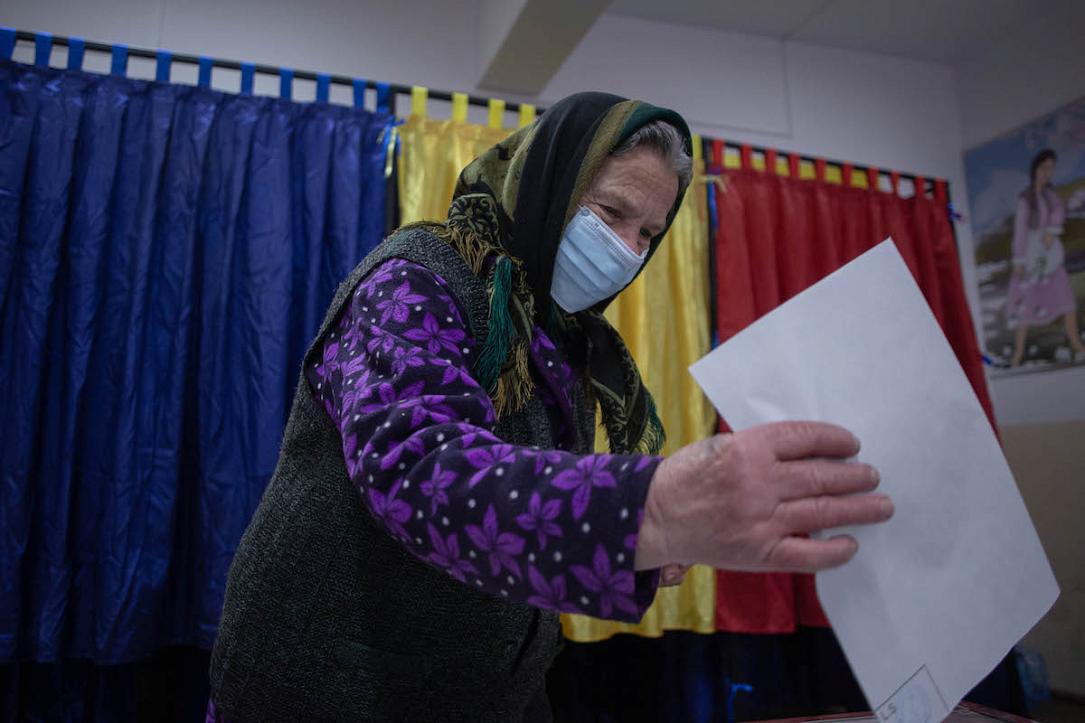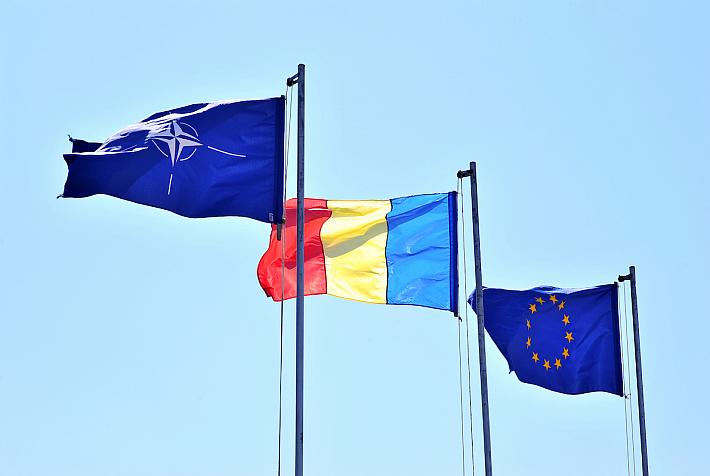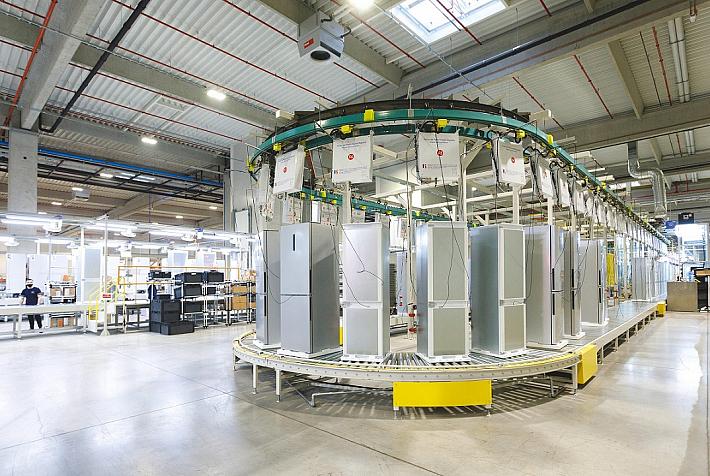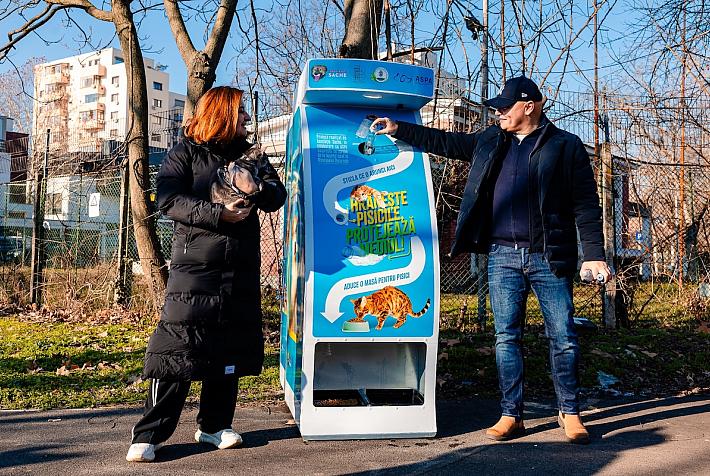Romania’s political year in review: A lost year, amid the pandemic and two election rounds

With the pandemic and the elections taking the center stage, Romania’s politicians didn’t have time for anything else. Thus, 2020 can be considered a lost year in local politics. Moreover, the result of the December 6 parliamentary elections, which has been tighter than previously estimated, is likely to maintain rather than change the status quo in the following years. This is the 2020 political year in review.
The 2020 political year can be divided into four chapters: pre-pandemic, state of emergency, local elections, and parliamentary elections.
Pre-pandemic
The year started with the Liberals on high horses after president Klaus Iohannis’ reelection in November 2019, but ruling with minority support in the Parliament. Early elections were at the top of their priorities in January and February. The Liberals forced the Social Democrats, which had almost a majority in Parliament to initiate a no-confidence motion and overthrow the Government led by Ludovic Orban. This was the first step to triggering early elections. The second step was to have two Government formulas rejected by the Parliament, but the Constitutional court stepped in and made things more complicated. Meanwhile, the political parties also started the last preparations for the local elections.
Liberals consolidate their lead in electoral polls in Romania
Former Romanian PM Mihai Tudose returns to Social Democrats
Romanian president Iohannis says early elections “still possible”
Romania's president and PM agree on early elections
Romania’s main opposition party prepares no-confidence motion
Romanian Govt. pushes opposition to file no-confidence motion aiming to trigger snap elections
Romania’s score in Transparency International’s corruption index weakens
Romania’s Social Democrats file no-confidence motion against Liberal Govt.
Romania’s Liberal Government falls after no-confidence motion. What comes next?
Romania's president designates dismissed Liberal prime minister to form another cabinet
PM: Local elections in RO, most likely on June 14
Romania’s Constitutional Court asks president to designate different PM
RO president says “most likely no early elections”
Romania's president appoints finance minister to form new Government
Mathematician and activist Nicusor Dan gets Liberals’ support in the race for Bucharest mayor
State of emergency
Then, at the end of February, the pandemic hit and forced all political actors to change their agenda. The president and the Liberals gave up on the early elections and the Social Democrats were more than happy to vote for another Orban cabinet to let the Liberals manage the sanitary crisis and pay the political price for it. President Klaus Iohannis decreed the state of emergency and Romania entered a two-month lockdown period. Meanwhile, the Social Democrats used their parliamentary majority to delay some of the Government’s measures and pass populist bills with a negative impact on the state budget. The most important such bill was forcing the Government to increase pensions by 40% in September, which would have had a massive impact on the state budget. However, the Government and president managed to defer enforcing this bill until after the parliamentary elections. The local and parliamentary elections were delayed.
Romania’s PM-designate steps aside to let current PM get new mandate
Romania’s Parliament votes new Govt. in record time to deal with coronavirus crisis
Romania's Parliament endorses the state of emergency but asks for ex-post report
Comment: How the coronavirus has changed the political landscape in Romania
RO reformist party USR proposes tax cuts, cash transfers to low income earners
Romanian Social Democrats draft bill to defer social security contributions and utility bills
Romanian parties compete to cut “special pensions” by special taxation
RO Govt. defers local elections for later this year
RO Constitutional Court rules abrogating public servants’ “special pensions” is not legal
Romania could get EUR 33 bln from the European Commission's Next Generation EU program
RO lawmakers pass 85% tax on so-called "special pensions"
Romania’s biggest opposition party elects new leadership in online congress
Romania's president slams Social Democrats over delaying legislation on fighting the pandemic
Romania's Govt. proposes general elections on December 6
RO lawmakers pass law entitling them to set general election calendar
RO Social Democrats’ no-confidence motion against Liberal Govt. fails
RO president, opposition blame each other for surge in COVID-19 pandemic
Romania’s Parliament ignores all warnings and votes 40% increase in pensions amid battle for votes
Local elections
The local elections took place in September and their results somehow confirmed the expectations. The center-right forces represented by the National Liberal Party (PNL) and the reformist USR-PLUS alliance managed to get better scores than in 2016, while the Social Democrats lost some fiefs but still managed to keep many. The most important battle of the local elections was the one for Bucharest. PNL and USR-PLUS decided to support a joint candidate – independent Nicusor Dan – who managed to defeat incumbent PSD mayor Gabriela Firea. PNL and USR-PLUS also scored victories in three of the city’s six districts. USR-PLUS also managed to somehow unexpectedly win the mayor seats in Timisoara and Brasov, two of Romania’s biggest cities, but the party’s overall score in these elections, of under 10%, was much lower than the one indicated by the polls.
Local elections 2020: Meet the top candidates for the Bucharest mayor seat
Comment: What's the stake of the local elections in Romania?
Romania local elections: Partial results confirm Nicusor Dan is Bucharest’s new mayor
Romania local elections: Young German elected mayor of Timișoara
Who is Nicusor Dan, the new mayor of Bucharest, and how does he plan to change Romania's capital?
Parliamentary elections - the campaign
Then, the battle for the parliamentary elections started. The Government set the date of these elections for December 6, but the Social Democrats tried to defer them arguing that the surge in COVID-19 cases made it unsafe to hold elections. The Parliament’s bill allowing it to set the general elections’ date was cleared by the Constitutional Court but blocked by president Klaus Iohannis. Thus, the elections took place as scheduled. However, the two months between the local elections and general elections were marked by a surge in COVID-19 cases, which put the spotlight on the Government’s poor management of the pandemic. Some measures taken in this period were widely criticized. The president openly campaigned for the Liberals while the Church also got involved in the campaign by protesting against the Government’s restrictions on pilgrimages and religious gatherings.
RO Social Democrats promise higher wages and pensions ahead of general elections
RO Liberals promise not to change the fiscal system
Romania’s reformist party USR-PLUS unveils six priorities
RO president says “elections must be held” despite complicated sanitary situation
Romania’s opposition wants to defer general elections to March 2021
RO Constitutional Court rules Parliament should decide general elections date
RO president Iohannis blocks bill that allows opposition to defer elections
Romania's ruling Liberals lose ground in the polls, Social Democrats and USR-PLUS go up
Closing food markets divides Romanian politicians
Romania's Orthodox Church publishes "pastoral recommendations for a responsible and fair vote"
RO president rules out post-election quarantine and campaigns for PNL-USR majority
Romania’s Liberal Govt. unveils National Recovery and Resilience Plan draft
Parliamentary elections - the results + new Government
The parliamentary elections on December 6 were marked by the lowest turnout in the last 30 years. Only about a third of Romanians went to the polls. This had a significant impact on the outcome. The Social Democrats came on top, with a score of close to 30% (although significantly lower than the 46% recorded in 2016) while the Liberals came second, with 25% (more than in 2016, but significantly lower than in the local elections in September). The USR-PLUS alliance was third, with 15% (more than in the local elections but well below the scores in the polls). The surprise of these elections was the Alliance for Romanians’ Unity (AUR), a new party with an ultra-conservative and ultra-nationalist orientation, which took almost 10% of the votes. Meanwhile, the parties of former prime minister Victor Ponta (PRO Romania) and former president Traian Basescu (PMP) failed to reach the Parliament. Despite the Liberals’ lower than expected score, they are most likely to remain in power as part of a center-right coalition that also includes USR-PLUS and the Democrat Hungarian Union (UDMR). Together, the three parties count on about 55% of the votes in Parliament, which is enought to pass most bills, but insufficient to promote major reforms.
Pandemic and record low turnout bring extremist party into Romania’s Parliament
Romania’s PM resigns after his party’s defeat in the parliamentary elections
Finance minister, the Liberals’ first choice to lead Romania’s new center-right Government
Who is AUR, the anti-system movement that has become the new force in Romanian politics?
Romania’s would-be center-right coalition partners can’t agree on who will lead new Government
Update: Romania’s center-right coalition reaches agreement on the next Government
RO Parliament: Former PM voted as Deputies Chamber speaker, ex FinMin heads Senate
Romania's president designates former finance minister to form center-right cabinet
Romania's center-right Government of PM Florin Citu takes office
Justice left out of the agenda
There was no room for major reforms in Romania this year, as the politicians were more focused on the pandemic and the political battle ahead of the elections. On the justice front, where the European Commission was expecting Romania to change some of the controversial bills passed by the former Social Democratic Government, progress was slow. Justice had only a marginal place on the public agenda.
President: Romania agrees to EU funds to be tied to respecting rule of law
Romanian president stirs controversies with the appointment of head prosecutors
Human Rights Court rules that Romania's former anticorruption head wrongfully dismissed
Romanian lawmakers reject dismantling of controversial investigative body
Romania’s remedial changes to Justice laws to address EC’s concerns
EC expects RO Govt. to “restore the path of judicial reform”
RO Parliament votes extended confiscation of wealth gained through crime
andrei@romania-insider.com
(Photo source: Inquam Photos / Ilona Andrei)












